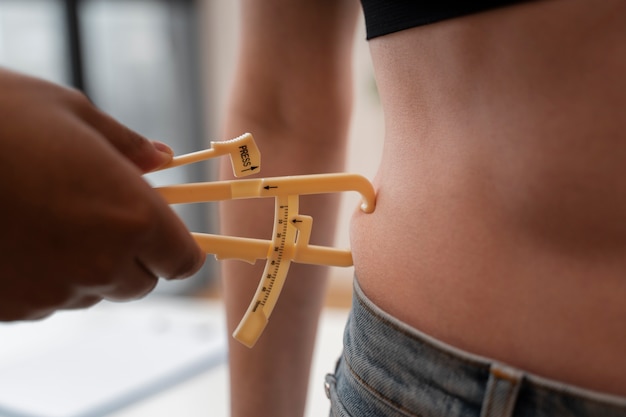
Want to lose weight? You might think the answer is to count calories and eat less. But according to Terry Fairclough, a top personal trainer and co-founder of Your Body Programme, that’s not necessarily the best approach.
As a personal trainer, I’ve heard countless diet tips and questions about achieving weight loss. Should we count calories? How many should we consume? Should we go low fat, low carb, or high protein? What about fasting or having small, frequent meals?
Sure, a big calorie deficit will cause weight loss, but it might not lead to losing fat, which is the real goal. Many people turn to extreme calorie restriction, thinking that’s the key to a great beach body. While the numbers on the scale might drop, the weight loss isn’t likely to be fat.
In today’s Western diet, portions are often way more than what our bodies really need. People generally do need to cut back a bit, but that’s usually because they were overindulging in the first place. The misconception is that eating less is the only route to weight loss, but that isn’t quite right.
Our bodies need carbohydrates for fuel, converting them into glucose, a type of sugar that powers our cells. When we don’t need all that glucose for activity, it’s stored in our muscles and liver as glycogen. For every glucose molecule, several water molecules are attached. If your calorie intake is too low, the initial weight you lose is mostly this stored carbohydrate and water, not fat.
When your body struggles for glucose, it holds onto fat for dear life and breaks down protein instead. More protein means a higher fat burn at rest, so it’s important to consume enough calories from all macronutrients—fats, carbs, and proteins.
Thinking of cutting out fat? Think again. Fat is a key, efficient source of energy, offering more than double the calories compared to proteins or carbs. Your body needs it to keep exercising and shedding those unwanted pounds. Skipping fat can leave you without the energy you need.
Restricting calories and essential macronutrients can lead to nutrient deficiencies, affecting every body system, especially the immune and digestive systems, and slowing your metabolism. Undereating might cause issues like fatigue, malnutrition, osteoporosis, anemia, hormonal imbalances, and fertility problems.
Severe calorie restriction stresses your body out, leading to cortisol release, the stress hormone linked to weight loss initially, but potentially harmful long-term. High cortisol levels encourage the body to hold onto fat and can impede metabolism, especially around the belly.
Eating too little may also affect your digestion of essential nutrients, impacting your ability to exercise effectively and reach your weight loss goals. Poor sleep is another downside, as low blood sugar can release adrenaline, waking you at night, which affects overall health and productivity.
Even professional bodybuilders adjust calories carefully, underscoring the risk of doing it wrong. Continuously cutting calories could have the reverse effect: pushing the body into a state where it clings to any incoming calories as fat.
In conclusion, balance is crucial. Consuming the right amount of calories and nutrients tailored to your body type, goals, and lifestyle is essential. At Your Body Programme, we’re here to help you discover your unique needs.
We advise eating plenty of lean proteins, healthy carbs from fruits and veggies, and good fats from sources like avocados and nuts. Remember, it’s about nourishing your body adequately to keep your metabolism running effectively.